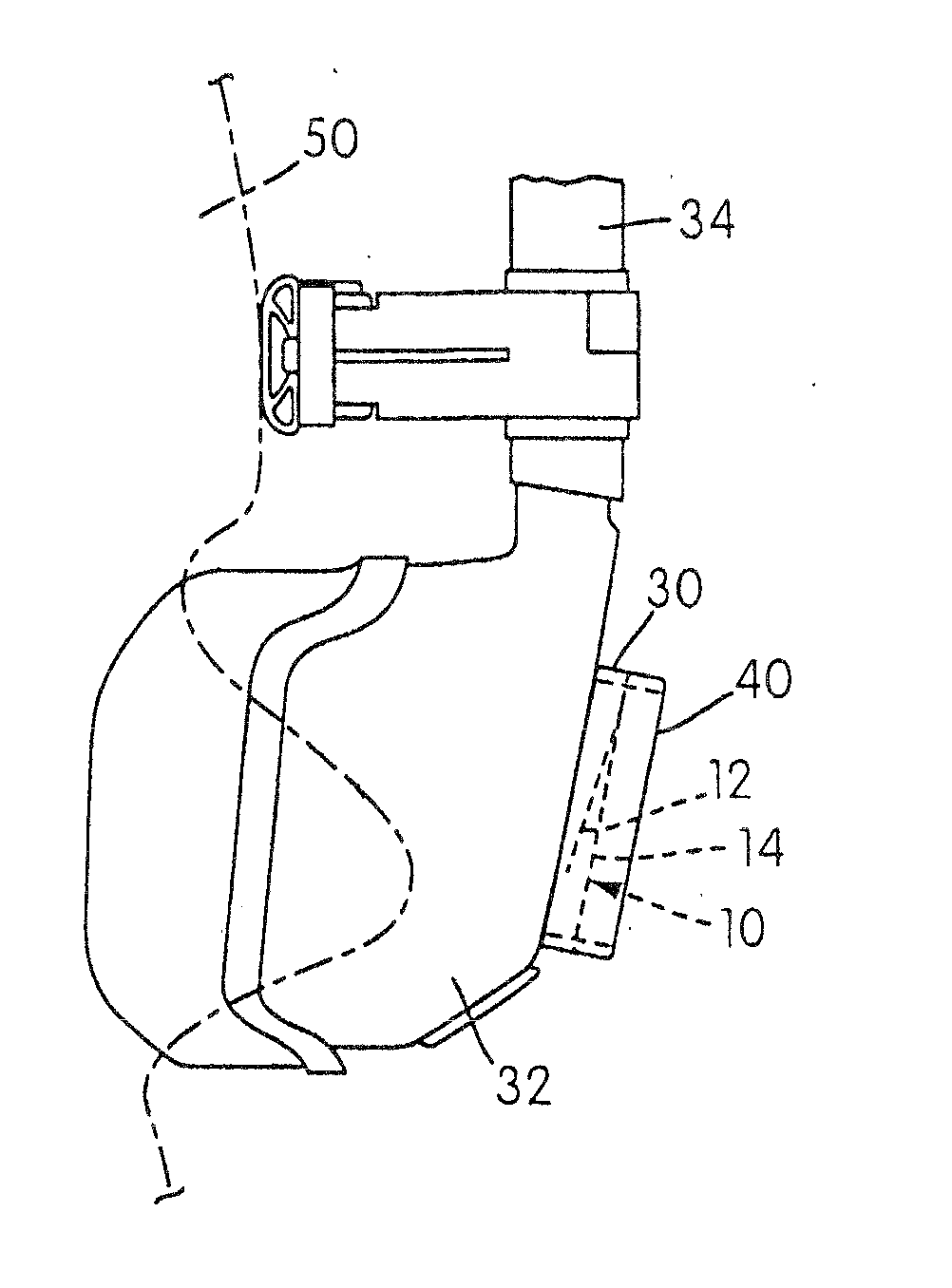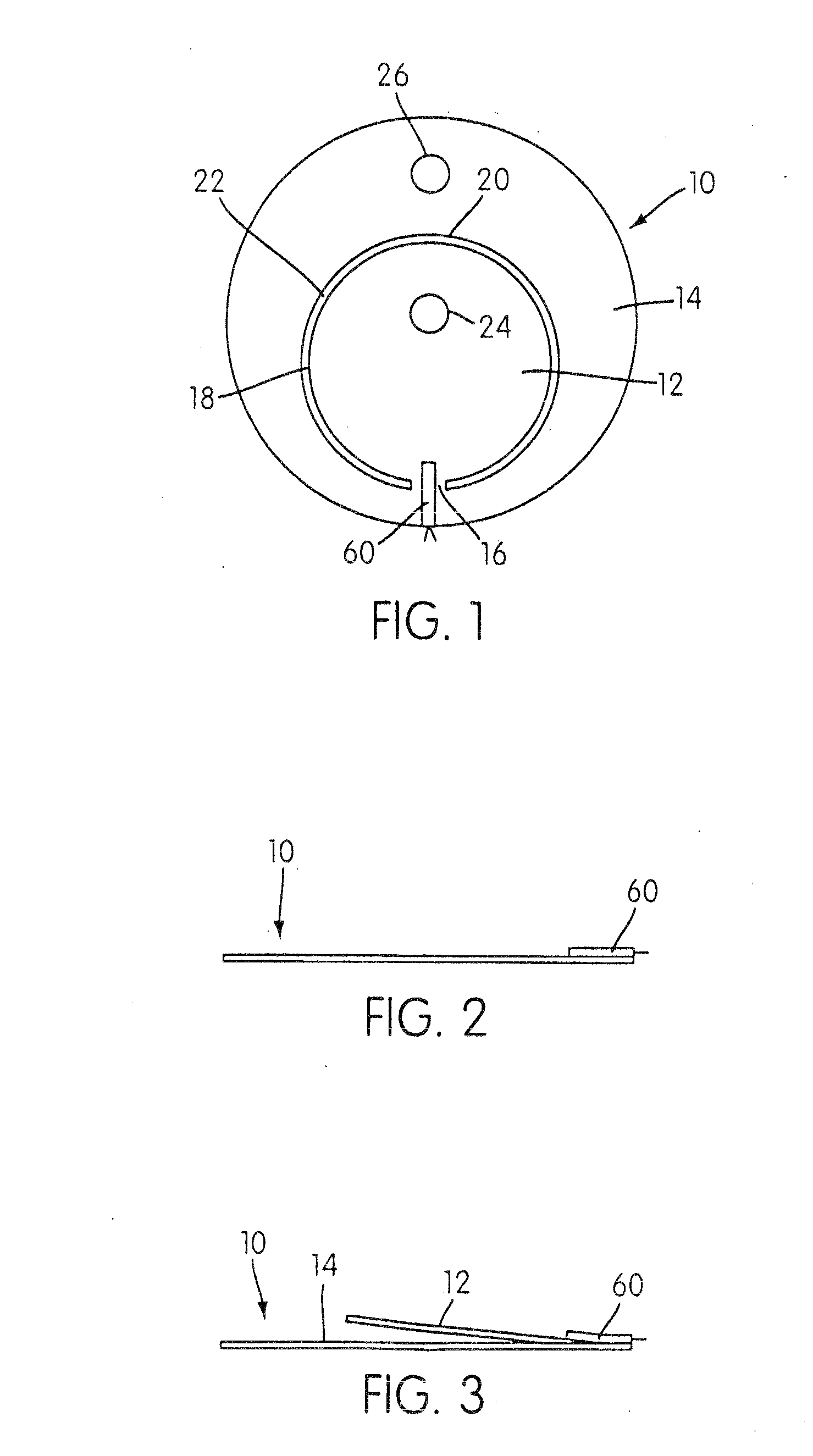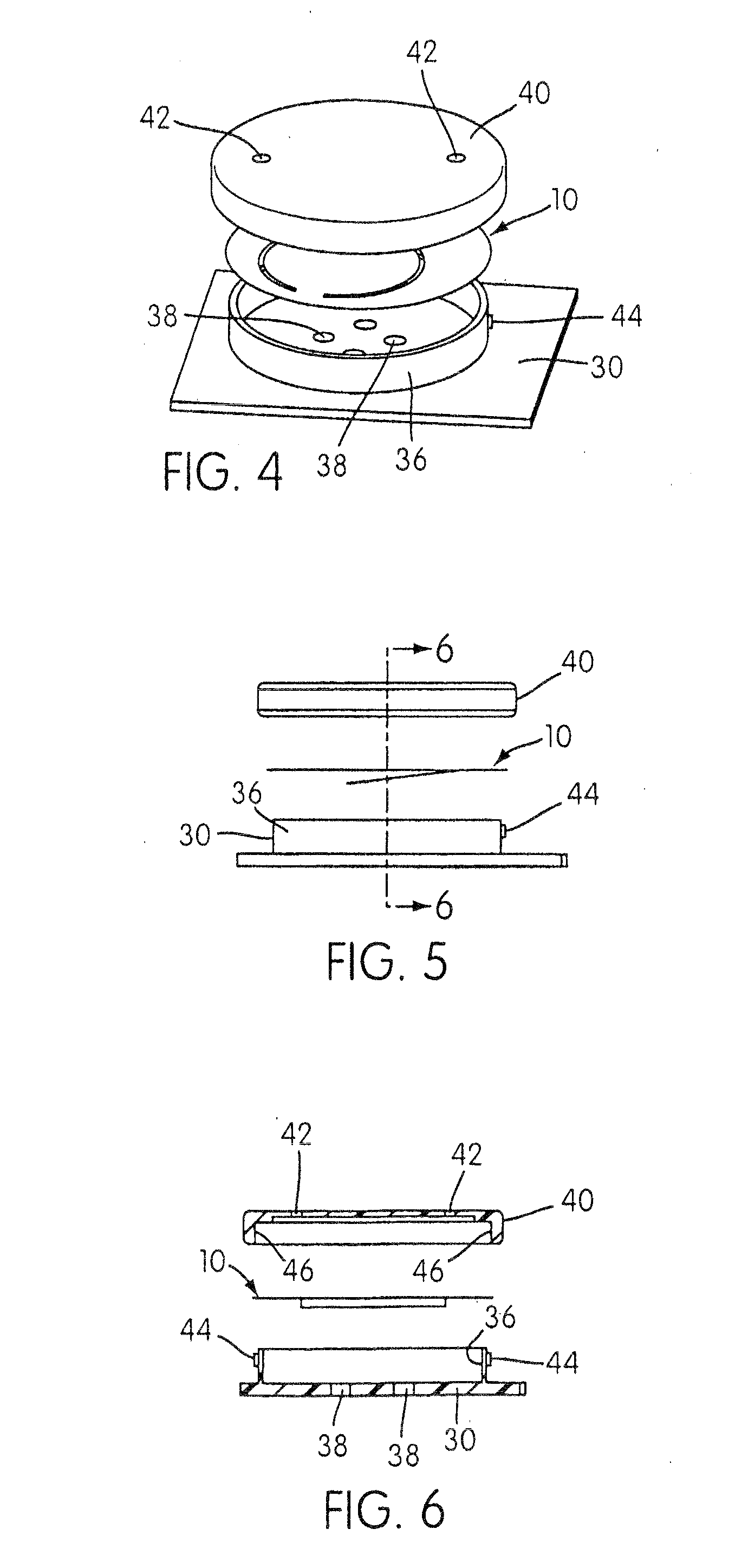Flow regulation vent
a vent and flow regulation technology, applied in the field of vent valve apparatus, can solve the problems of excessive noise, more gas passing, and existing prior art vents, and achieve the effects of increasing mask pressure, natural rigidity, and spring resistance against bending of the flap
- Summary
- Abstract
- Description
- Claims
- Application Information
AI Technical Summary
Benefits of technology
Problems solved by technology
Method used
Image
Examples
Embodiment Construction
[0072]A flow regulation vent 10 is shown in FIGS. 1-3, and, in this embodiment, is circular. The flow regulation vent 10 is constructed from a unitary sheet of material and includes a movable portion 12 pivotally attached at one end to a fixed portion 14 by unitary hinge 16. Movable portion 12 has an outer perimeter 18, which, in the embodiment shown, is substantially circular. Fixed portion 14 includes an orifice 20, which, in the embodiment shown, is also substantially circular and which is slightly larger in diameter than the diameter of the outer perimeter 18 to provide a gap 22 therebetween when the movable portion is in a fully pressurized position. See FIG. 2, which shows a side view of the vent 10 when in the fully pressurized position. Movable portion 12 can optionally include one or more bleed orifices 24 and fixed portion 14 can optionally include one or more bleed orifices 26.
[0073]FIG. 4 shows the flow regulation vent 10 in an exploded perspective view in combination wi...
PUM
 Login to View More
Login to View More Abstract
Description
Claims
Application Information
 Login to View More
Login to View More - R&D
- Intellectual Property
- Life Sciences
- Materials
- Tech Scout
- Unparalleled Data Quality
- Higher Quality Content
- 60% Fewer Hallucinations
Browse by: Latest US Patents, China's latest patents, Technical Efficacy Thesaurus, Application Domain, Technology Topic, Popular Technical Reports.
© 2025 PatSnap. All rights reserved.Legal|Privacy policy|Modern Slavery Act Transparency Statement|Sitemap|About US| Contact US: help@patsnap.com



